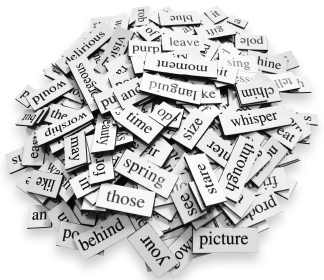Get it Out of Your System!

I doubt there is anyone over the age of twelve who doesn’t know what stress is! Since the early eighties, stress management has been a hot topic, especially as high or constant levels of stress have been linked to life threatening illnesses such as high blood pressure, heart attacks and strokes. Kids are stressed about problems at home and with their friends, and pressure to perform at school and sports. As for adults, there is so much to be stressed about, where do you even start?
In May 1999, an Australian Newspoll study of the major sources of stress for women listed the highest ranking worry as being financial pressure (56%). After that, the stressors were worrying about children’s future (55%), finding time for yourself (51%), juggling family and work (46%), knowing what you want (39%), health (33%), the relationship with your partner (25%) and lastly, retirement (15%). I wouldn’t list mine in that same order, however financial stress certainly does belong in first place! Many books have been written suggesting a whole host of remedies for stress, from exercise and meditation, to St. Johns Wort and deep breathing. All have benefits if you have the discipline to practice them regularly.

Copyright Sam Mugraby www.photos8.com
Another method which is cheap, portable and very easy is journaling. Journaling doesn’t mean writing a diary of daily events, rather it is writing down your thoughts and feelings in a private notebook. This allows you to get it all out of your system, and to gain a new perspective on what has happened. I’m not disciplined enough to write every day, as some recommend, however I’ve found that writing out what I am thinking and feeling when I am stressed or upset, helps me a great deal.
University medical studies have discovered that people with long-term illnesses that are a constant battle, such as asthma or arthritis, can improve their health if they journal out their stressful feelings. In one study, asthma patients experienced a 19% increase in lung function, over a period of four months. Getting it out of your system by writing freely seems to be an excellent tool for dealing with the annoying, and demanding situations we face every day. James Pennebaker from the University of Texas has said that writing about your emotions can not only prevent illness, but can also dissipate anger, ease depression and help you to solve problems. New insights into yours or other’s behaviour can come to you, or maybe ideas and dreams that you haven’t thought about for a long time. If you are prepared to make the decision to stop fretting over an incident or hurt once you have put it on paper, journaling can be an effective tool in letting go of painful emotions, rather than letting them build up and harm you further. Journaling is a form of mental detoxification, and can be as good for you as a balanced diet and exercise!
So what do you write? Firstly, get yourself a practical or decorative notebook and pen which you will enjoy writing with. Make sure you have time, even if it is only ten minutes, and some space to write undisturbed and away from prying questions. A suitable hiding place for your journal is also a good idea. Don’t make a big thing of guarding it or warning others away, just put it away where you know it won’t be read. This is your emotional outlet, only to be shared if you choose, and choose carefully! They key is to just start writing. Forget grammar and punctuation, they are not relevant or necessary here. Just write about what has happened, how you feel, the person you are or would like to be. Write about your dreams and goals, your hopes and how you see the world.
Don’t throw out what you have written on “black” days either. You may want, or need to go back and read those entries later as encouragement that you can get through, or to look back on lessons you have learned or strengths that you have gained. Old entries can also help you to use those experiences in guiding you in making better decisions, or choosing an alternative course of action later.
 Don’t just keep a journal as a dumping place for your stresses or traumas though, or you will never want to pick it up and write in it. Use it for inspiration! Write down poetry, song lyrics that mean something to you. Include photos, memorabilia, record your achievements and the good things that happen also. You may want to also use your journal as a gratitude journal. Write down five things every day that you are grateful for. That will soon lift your spirits. Write down the joys of life, not just the heartaches, and even if you do have a bad day you want to put on paper, try to round it off with a positive point at the end. Journaling can not only improve your health, by using it this way, it can also improve your whole life perspective.
Don’t just keep a journal as a dumping place for your stresses or traumas though, or you will never want to pick it up and write in it. Use it for inspiration! Write down poetry, song lyrics that mean something to you. Include photos, memorabilia, record your achievements and the good things that happen also. You may want to also use your journal as a gratitude journal. Write down five things every day that you are grateful for. That will soon lift your spirits. Write down the joys of life, not just the heartaches, and even if you do have a bad day you want to put on paper, try to round it off with a positive point at the end. Journaling can not only improve your health, by using it this way, it can also improve your whole life perspective.
If you would like to write a journal or an autobiography, the Write Your Life Story E-Course will give you a structure for what you want to write; many ideas to get you started and enthusiastic; and an understanding of new techniques to bring back memories and write a vibrant story.
By the end of the course you will have:
• Constructed a time line of your life’s events as a starting point for writing;
• Chosen a title;
• Planned what resources you need such as cost and research;
• Used memory trigger techniques and mind mapping;
• Decided which parts of your life you do and don’t want to write about;
• Knowledge about which biography writing pitfalls to avoid;
• Used basic fiction writing techniques to add colour and depth to your work;
• Have a list of resources for inspiration and further information;
• Organised your work so nothing is lost.
If you would like a sample of what the E-course is like, please visit this link: http://www.virtual-desk.com.au/WYLS%20eCourse%20Week%201.pdf Currently, the course is only available directly from Cate. To order, visit http://www.virtual-desk.com.au/trainer.html The courses will be sent to you by email within 48 hours of your payment being received. They are virus and malware free, DRM free pdf files.
Tutoring services cover a year from the date payment is received. It does not include manuscript editing services, promotion, recommendations to publishers, writing query letters, technical formatting of a manuscript or any aspect of the publishing process. It includes feedback on your writing and course exercises; discussion of the course material, approaches you can take in your work and technical assistance on any aspect of the course.
Join Our Facebook Community
 You are also most welcome to become a part of the Write Your Life Story Facebook Community. It’s aim is to inspire you to write and improve as a writer, by regularly sharing resources and helpful ‘how-to’ posts on Facebook. The page address is: http://www.facebook.com/pages/Write-Your-Life-Story/173393852705651?sk=app_190322544333196
You are also most welcome to become a part of the Write Your Life Story Facebook Community. It’s aim is to inspire you to write and improve as a writer, by regularly sharing resources and helpful ‘how-to’ posts on Facebook. The page address is: http://www.facebook.com/pages/Write-Your-Life-Story/173393852705651?sk=app_190322544333196
If you have any questions, please don’t hesitate to contact me.
**The photo of the girl reading on the beach above is the copyrighted work of Sam Mugraby. (Photos8.com) The quill and magnetic word pile photos in this post are paid for and licenced to me. They are Copywritten. You may not save it or use them for your own purposes. You can purchase them from iStockphoto.com
This article is Copyright Cate Russell-Cole 2012. All rights reserved. It may not be reproduced in any medium, in print or digital format. I regularly search for my articles and have found where they have been used without permission. Action will be taken against offenders.
Filed under: Creativity, Food For Thought, Inspiration, Journalling, Resources, Writer's Recovery Community Post, Writing Tagged: autobiography, biography, brain, challenge, creativity, inspiration, journal, journaling, learning, mind, stress, stress management, writer, writing













